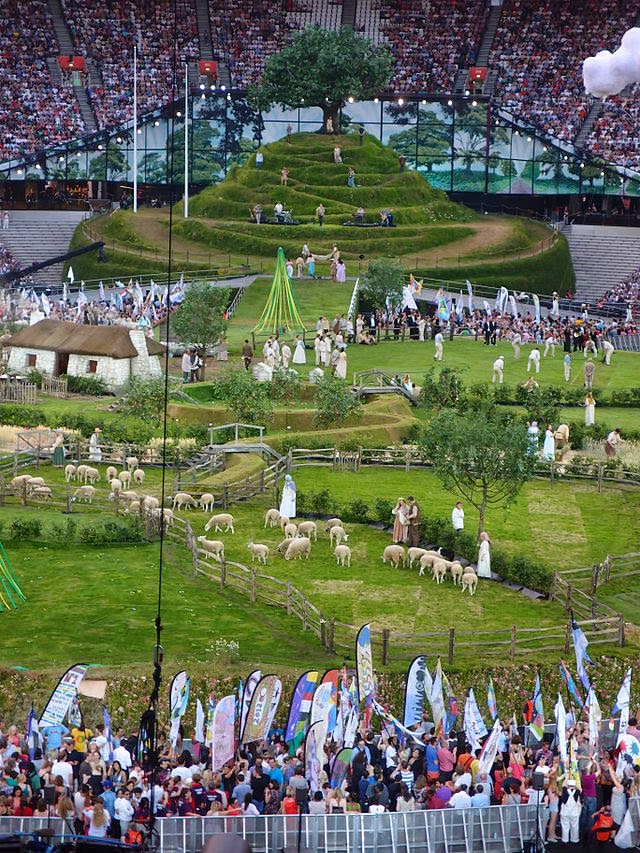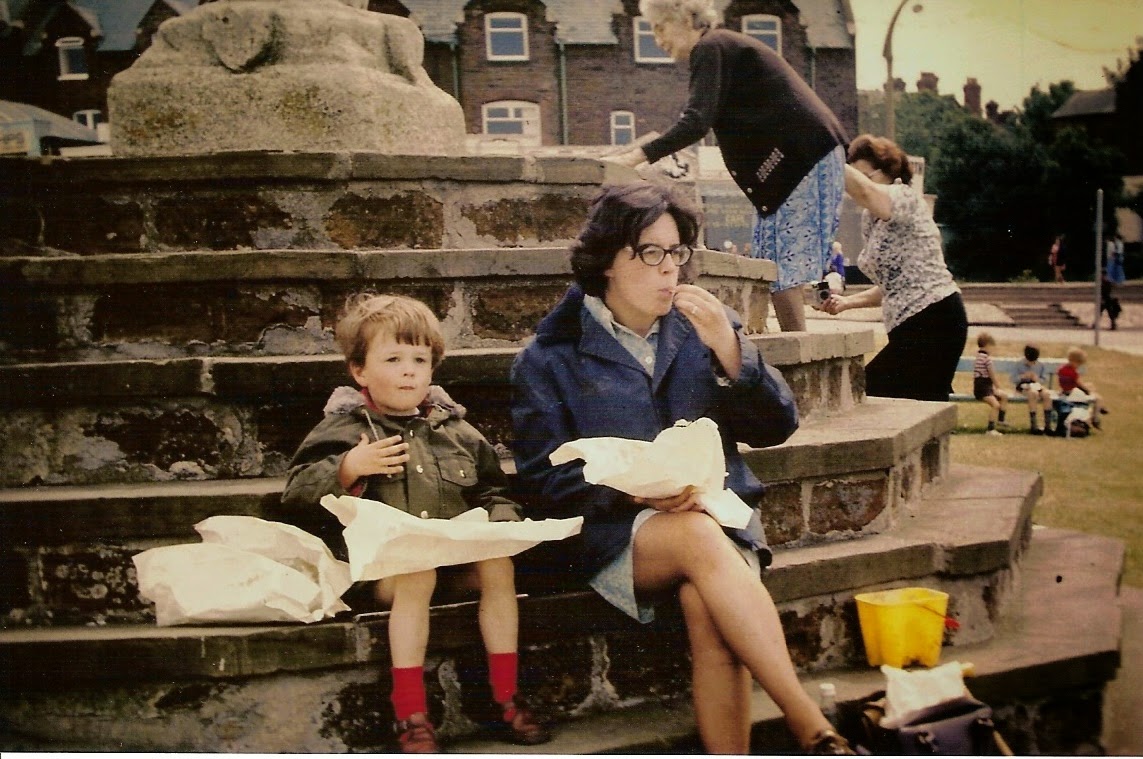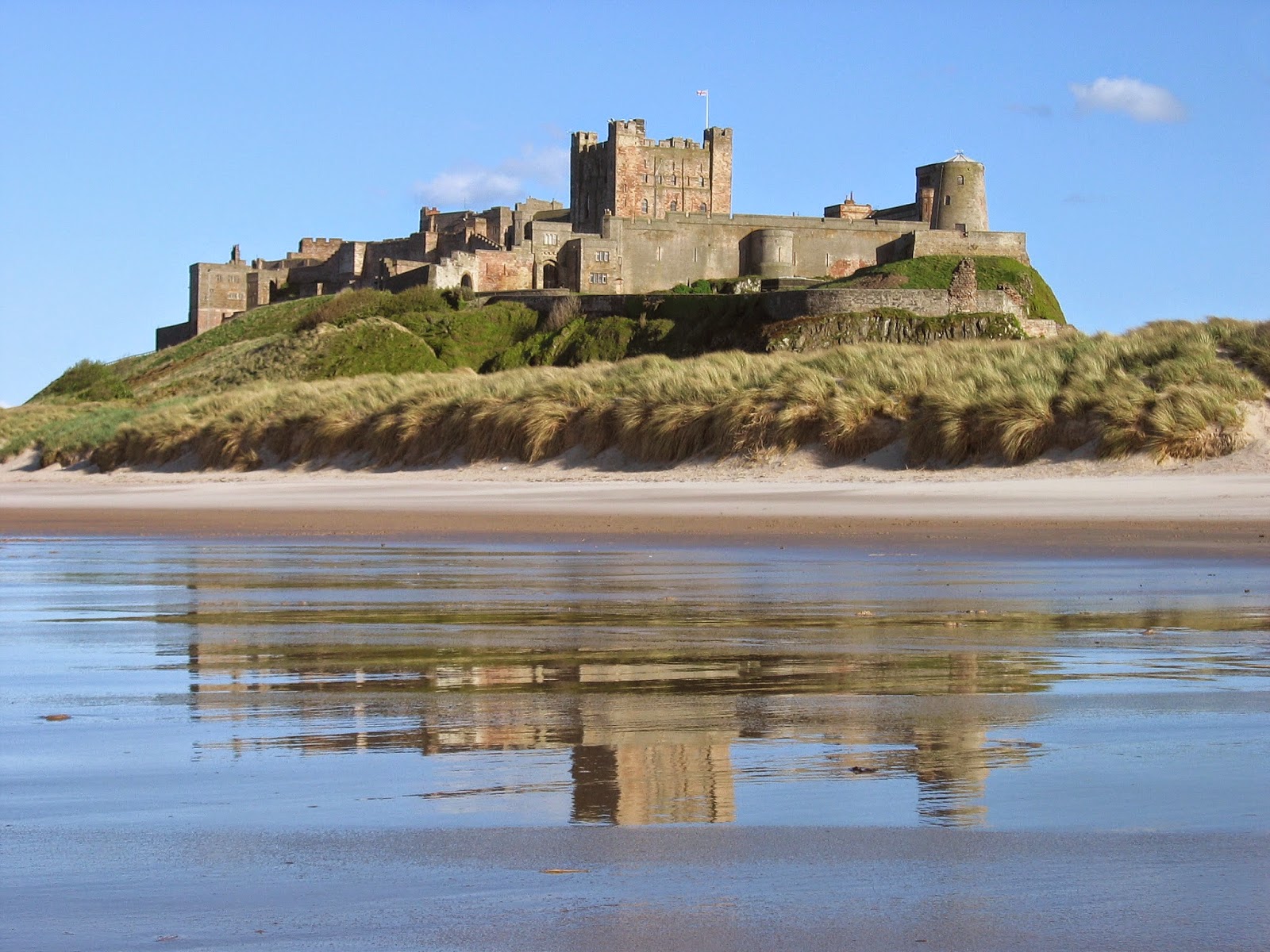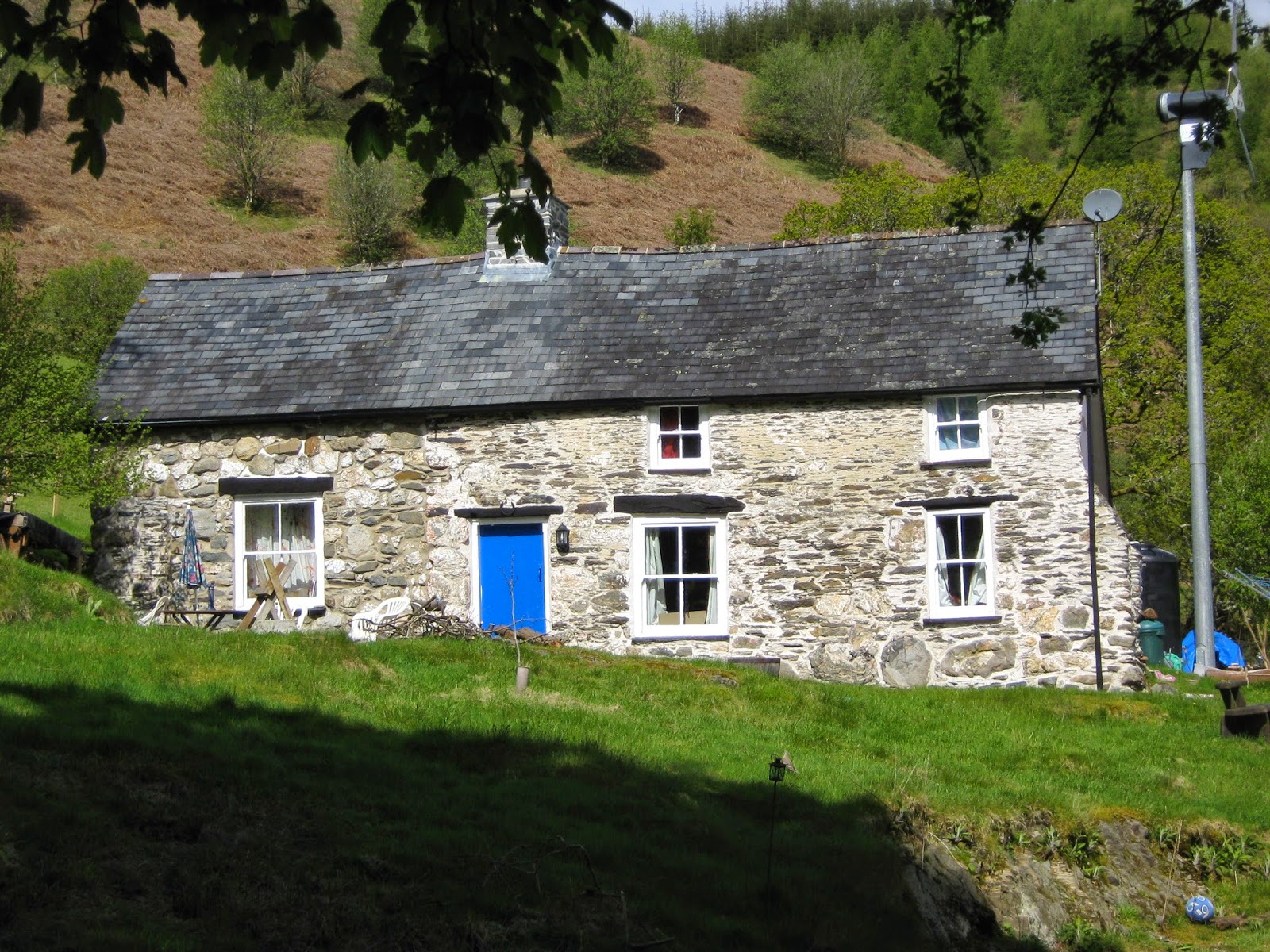 |
| Hadrians Wall and Win Sill (Rod Edwards) |
Dear visitor to our shores,
Our country doesn't always come across terribly well to outsiders.
We've carried on invading people long after everyone else dropped out of the Empire building game, and if we don't send our tanks our football fans can be just as unwelcome abroad. At home we neglect our elderly but protect our Bankers.
Oh dear.
.jpg) |
| 2012 London Olympics (wikicommons) |
But there is another side to England, the polyglot country of Celt and Vikings and Anglo-Saxon and Norman and many, many others, that had trial by jury and
habeas corpus before the Middle Ages were done, that killed its King one hundred and fifty years before the French Revolution, that voluntarily abandoned slavery, that welcomed refugee Jews and Huguenots and revolutionary Russians, that spent the accumulated fortune of a century on defeating fascism and then celebrated by founding the Welfare State and giving away the largest Empire the world has ever seen, which faced down the spectre of racial conflict and instead opted for tolerance and diversity and which, when it welcomed the world to the 2012 Olympics, decided to showcase the National Health Service and rock music.
So please come and see us some time.
But whilst you're here, what should you do? Here are my suggestions.
1. See what we've stolen off you
 |
| Lord Elgin's chess set |
Before you all came to see us, we came to see you. Unfortunately some of these early tourists came away from your countries with a little bit more than just memories.
The Elgin Marbles are
the most famous, but there's a lot more. Fortunately,
not only can you can see most of this stuff for free whilst you're here, but we've also built
some pretty impressive museums to house it all in.
The Natural History
Museum is the most impressive building. You almost expect Professor Challenger to come
marching up the stairs with the Pterodactyl he's just caught in
the Lost World. The British Museum must be next best, with its new dome making an interesting blend of classical and modern.
 |
| Natural History Museum by Raymond Choo, My Shot |
Of
course, not all the stuff on show is loot. From dinosaur skeletons to
Roman remains, a lot is genuinely ours. You can see the Sutton Hoo
treasure in the British Museum or - even better in my opinion - see some of it
where it was found in Suffolk.
It's also not just ancient junk. In Manchester you can look at a replica of the 1966 World Cup in
the Manchester in the National Football Museum, pretend to be Eric
Cantona at Old Trafford or learn about the Peterloo Massacre in the People's History
Museum.
And there's plenty more to see. Just don't ask if you can take any of it back home with you.
2. Eat fish and chips on the beach
We English are more famous for our sense of humour than our food. However, I did know a foreign lady once who was very fond of the traditional offal dishes I prepared for her. She enjoyed my kidneys in red wine and oxtail in beer, but her favourite was my Tongue in Cider.
Oh dear, a double entendre appears to have inserted itself into this blog. If I find another I'll whip it out...
Okay, maybe we should forget the jokes as well and stick to what we know; bland food.
Fish and chips is a product of the Industrial Revolution, when railways allowed fresh fish to be brought to the big cities and Working Class people could afford to eat out for the first time. Once the
 |
| Fish and chip in Hunstanton, 1973 |
Trade Unions had managed to get the employers to agree to Bank Holidays the same trains took the workers to the seaside. Where better to enjoy your fish and chips?
Now looking at the seas off these islands you could be forgiven for thinking that the fish isn't likely to be very fresh even when it's alive, but don't worry, once it's been deep fried and drowned in vinegar you won't notice. Preferably it should be cooked in beef dripping, but that's rare outside of Yorkshire, and then served with mushy peas, although they are often confused for avocado dip in these more cosmopolitan times.
Abroad the beach may mean sun, sand and sex, but in cold, wet and repressed England it means fish and chips. As I said, it's best when we stick to what we know.
3. Drink a pint warm beer
The English drunk is not a pretty sight.
Whilst the ritual of knocking back as much as you can in the last ten
minutes before the bar shuts at eleven is mostly a thing of the past, I
would strenuously recommend you avoid the sort of places where that sort
of behaviour still goes on. You can usually spot these places by the trendy music and trendier clientèle.
Instead head off to
somewhere a little more rustic. Our milds and bitters may
be a bit of an acquired taste, but there is real art in some of those
ales. Watch out for the Big Brand nitro-keg ales that are a poor
substitute for the real thing and go for the ones with the weird names
by companies you've never heard of.
And don't worry if you're a lady,
women drink pints as well now.
4. Walk in the hills
.JPG) |
| Kinder Scout, Derbyshire (M Porter) |
Look at a map of England and you will see that half of the country is north of the Humber estuary. This may come as a surprise to many people, including the BBC and most of our politicians.
This forgotten half of the country is mainly famous for grim cities with great football teams, but in reality most of it is hills. We really can't pass them off as mountains, not to people who know the Peloponnese or the Pyrenees or the Alps, but they aren't bad. The Lake District is the really pretty bit, but that makes it busy and some of the 'hills' can be hard work to climb.
 |
| High Cup Nick, Cumbria (M Porter) |
Running up the centre of the country are the Pennines, which includes some of the most the most gob-smacking beautiful - and peaceful - countryside in England.
The Pennine Way runs from Kinder Scout above Glossop, famous for the
Mass Trespass that opened up the hills to ordinary folk, over Black Hill towards the Yorkshire Dales and lovely Malham Cove, ascends Pen y Ghent and on to Cauldron Snout and High Cup Nick before coming up against Win Sill.
This a ridge running the width of the country that provides fine views towards Scotland. Some Italian visitors a couple of thousand years ago adorned it with a long wall and some attendant forts, which makes walking it even more interesting.
Kevin Costner even called by once.
The weather up here can be foul, but it can also be divine, and being England it is never too cold, or too warm, for a walk.
5. Attend a ritual at a stone circle
Wild nature is all very well, but the urge to adorn it is only human.
Given that England is a country where the idea of cafes that open after 6PM is still a novelty, it may seem strange to claim we were ever amongst the more civilised nations in Europe, but four thousand years ago we might have been. Before even the Egyptians were building pyramids, we were constructing giant astronomical temples in the landscape.
 |
| Handfasting at Avebury (Wikicommons) |
Everyone has heard of Stonehenge, but this is just one of over
one thousand stone circles that once covered these islands. Most are now gone, but a hundred or so still stand. What's more, thanks to a revival of Paganism over the last few decades, they are mostly still in use. I've even helped to add a new one myself.
Modern Druidism has its origins in eighteenth century Welsh nationalism. These days though it's open to all and
part of a Druid ritual actually made it into the closing ceremony of the 2012 London Paralympics.
Along with Wicca - the only religion England has ever given the world - these modern Pagans can often be seen in stone circles taking part in rituals either public or private. Contrary to rumours, we tend to keep our clothes on.
Mostly.
Since the national disgrace that was the visitors centre has now been replaced it's worth visiting Stonehenge again. To get the authentic experience you need to go on one of the Quarter Days when the stones are opened up for giant Pagan party. Midsummer is the big one, although midwinter is the celebration the stones were actually built for. The days when these gatherings ended with a charge by the riot police are thankfully long gone and it's a party atmosphere now.
If you prefer your ancient relics free and open to everyone all year round then nearby Avebury is the biggest stone circle in the country and the rituals there are smaller and more spontaneous. For a more spiritual experience though, head away from where the crowds are. A visit to smaller circle on the moors under a full moon is a profound experience.
6. Visit a romantic castle
 |
| Bamburgh Castle alias Le Joyous Gard |
In 1066 some less welcome foreign tourists dropped by in England. They killed our King, wiped out a significant proportion of the population and nicked all the best land.
And the damn thing is they've still got most of it, but that's another story.
However the upside of these skivers coming over here and opting for an easy life living off the backs of ordinary, hard working families is that they had to build some really quite wonderful castles in order to stop the common people lynching them.
Or rather they made the common people build them some wonderful castles.
 |
| Alnwick Castle alias Hogwarts |
In due a course efforts were made to tame the excesses of this psychopathic 1% and so chivalry was born. Rather like the good folk to try to make evil corporations do the right thing, the effort was mostly worthless, although there were some fine exceptions.
Sir Thomas Malory's
Le Mort D'Arthur is probably the finest testament to Chivalry. You have to flick through to the good bits, and most of the stories were nicked off the Welsh, but there is some decent stuff in there, and once you are in true Romantic mode you can view these castles as they really aren't.
 |
| Knights of the Damned (M Porter) |
The finest castle in England, as far as Malory was concerned, was Sir Lancelot's
Joyeus Garde. This was almost certainly based on Bamburgh castle in Northumbria which Malory besieged during one of
our less-than-romantic civil wars. As it's built on the beach and looks out over the Abbey of Lindesfarne, castles don't come much more romantic than this.
But whilst all our great castles are wonderful when it is just you and your imagination, to get the authentic sight, sound and unfortunately smell of the Age of Chivalry, you need to go to a re-enactment. Whether it is a noble joust or a massive brawl, we do these things quite well now and a really big event is a spectacle not to missed.
7. Picnic in the grounds of a stately home
 |
| Chatsworth House |
Fast forward a few hundred and the aristos still live a life of comfort and ease whilst the workers toiled in the factories to pay for it all. However by 1913 the proles are getting a bit restless and the only reason we don't have a
Class War was that we had a World War instead.
The legacy of this era is some of the finest domestic architecture in Europe and, thanks to a century of Death Duties, most of it is open to the public. The houses can be magnificent, but sometimes the grounds are in are even more spectacular. Under the guidance of landscape architects like 'Capability' Brown and Joseph Paxton, armies of labourers demolished peasant hovels, levelled hills and planted trees with the aim of creating "
nature perfected".
To enjoy them just pack the cucumber sandwiches and the champaign, or the Scotch eggs and cider, or the pie and the bottle of ale or....well, you get the idea. As long as you don't forget the umbrella and the mac.
8. Watch a cricket match
Another reasons given for why we never had that revolution is that the aristocrats did at least play games with peasants they were oppressing.
When it comes to international sports we English invented most of them, although in the spirit of true sportsmanship we now let other people win.
The most English of sports is surely cricket. With the white clothes, rituals and traditional use of willow, cork and leather I'd love to claim that this is some legacy of the ancient druids, but the truth is the game was probably invented by the French.
Test Match cricket is clearly the top of the tree, County Cricket is for the serious fan only and 20/20 Cricket is for people who would really rather be watching football, but village cricket is for the Romantic. Here's one misty eyed description of village cricket, from a court judgement of all places:
In summertime village cricket is the delight of everyone. Nearly every
village has its own cricket field where the young men play and the old
men watch. In the village of Lintz in County Durham they have their own
ground, where they have played these last 70 years. They tend it well.
The wicket area is well rolled and mown. The outfield is kept short. It
has a good club house for the players and seats for the onlookers. The
village team play there on Saturdays and Sundays. They belong to a
league, competing with the neighbouring villages. On other evenings
after work they practise while the light lasts.
 |
| Dad takes a catch (M Porter) |
This was the late Lord Denning, a poetic judge, but also a part of the Establishment. He kept the Birmingham Six in prison, even though he knew they were innocent, as to let them go would make the system look bad. The Establishment has always liked cricket.
A game of subtlety that requires patience and concentration to enjoy, cricket also lasts long enough to have a picnic and get gloriously drunk, although maybe not quite long enough for you to learn all its fiendishly complexities.
However the best games of cricket are those you play with your family, perhaps after your picnic or on the beach before you eat your fish and chips.
9. Go to a music festival
 |
| Metallica Glastonbury 2014 (BBC) |
But if cricket is a bit dull for you, then perhaps music is more your thing. The days when we could claim English music ruled the world ended with the demise of Britpop, if not the Beatles, but our festivals are still pretty good.
Your modern music festival has its origins in the USA with
Monterey, although the
Beaulieu Jazz Festivals that started in the mid-fifties blazed a bit of a trail.

The ideal British music festival aims for an atmosphere somewhere between
Lord of the Rings and Woodstock, but thanks to our weather often ends up a cross between
Waterworld and Passchendaele.
Glastonbury is the big one, although as everyone knows it isn't as good as it used to be and never was. Then there's Cambridge for the folkies, Donnington (alias Download) for the metal heads, Hawkfest for the ageing hippies, Beautiful Days, for those who remember Glasto as it used to be etc etc.
My favourite though takes place
in a field in Oxfordshire the second weekend of August.
10. Visit the neighbours
.JPG) |
| The Giants Causeway, Northern Ireland (Wikicommons) |
England is not alone in the world, although some of its residents seem to think it is, and one of the best things about living here is our wonderful neighbours. They might not think it's so wonderful having us next door, but that's a different matter.
Wales is but a short drive from most of the country, Scotland a longer but much more interesting drive, and Ireland and Northern Ireland are only a short ferry journey away.
All are nations in their own right, except for Northern Ireland which hangs in a sort of legal limbo and so is known as 'The Province', and all are custodians of a Celtic heritage that used to be England's as well.
 |
| Bron-Yr-Aur, Machynlleth, Wales (M.Porter) |
The scenery is amazing, the culture fantastic and you'll receive a really warm welcome, especially once they realise you're not English.
From Northern Ireland's Causeway Coast, where Led Zeppelin got the cover of
Houses of the Holy, to the little cottage in Wales where Led Zeppelin recorded part of their third album, you'll find plenty to surprise and delight.
I haven't space to tell you everything about them unfortunately, and anyway this is a blog about England
, my England, a place I love but not so much that I don't want to change it, and a place I hope you will visit soon.
 Along the way I started a tertiary career as political rabble rouser. I spoke at the march in March, to the Manchester TUC May Day March, at a student debate (which the anti-frackers won) and at the Manchester People's Climate March (which is now on Youtube).
Along the way I started a tertiary career as political rabble rouser. I spoke at the march in March, to the Manchester TUC May Day March, at a student debate (which the anti-frackers won) and at the Manchester People's Climate March (which is now on Youtube). In November it was back to rabble rousing as we hosted the Northwest launch of the One Million Climate jobs report, where I was blown off stage by some pretty power union speakers. However it was at least a chance to campaign on something positive for a change.
In November it was back to rabble rousing as we hosted the Northwest launch of the One Million Climate jobs report, where I was blown off stage by some pretty power union speakers. However it was at least a chance to campaign on something positive for a change.

(2).jpg)



























.jpg)
















